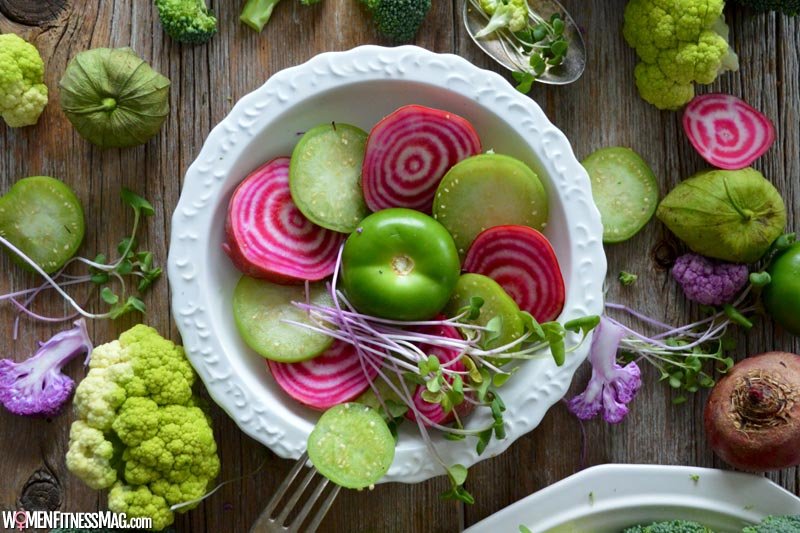Is A Vegan Or A Vegetarian Lifestyle Right For You? These days we have more choice about what to eat than ever before. Supermarkets are bursting with a wide range of ingredients, from fresh fruit and vegetables to exotic spices. Vegetarianism – and its stricter cousin, veganism, are appealing for a number of reasons. The sight of big bowls of fresh, green and leafy veg is often a harbinger of good health.
And the ethical considerations around our diet are more important than ever – what we eat has huge implications both on the wellbeing of animals around us and the growing climate crisis. Let’s take a look at vegetarianism and veganism – what’s the difference, and why these diets might be right for you.
Vegetarianism
So what is vegetarianism all about? This diet originated primarily due to ethical concerns about the treatment of animals, and most vegetarians choose not to consume any products which are produced by killing animals – that means no more chicken or beef! However, it’s a little more complicated than that – gelatine, for example, is produced by breaking down animal bones and ligaments and it’s found in many gummy sweets. As a vegetarian, you need to avoid more than just meat – all byproducts of animal slaughter are avoided as well.
There are many subsets of vegetarianism. Some choose to be vegetarian, but continue to eat fish (called pescetarianism) whilst others choose to cut out dairy products, but to continue eating eggs. Veganism is a stricter variety of vegetarianism where any product related to animals is avoided. Let’s take a closer look.
Veganism
Within veganism, you’ll be avoiding not only products such as beef and gelatine which are produced through the killing of animals. Vegans avoid anything which is an animal product or byproduct. That means vegans won’t eat dairy products, eggs or even honey and they will avoid wearing leather or wool due to the association of these products with animals.
The Health Benefits
Anecdotally, many people report feeling like they have more energy when they undertake a plant based diet. But does the science back this up? After all, many assume that humans have evolved to eat meat.
Research has shown that both vegan and vegetarian diets tend to include less saturated fat and lower cholesterol counts, making these diets good for your heart. By consciously eating sources of protein such as lentils and grains, what you lose out in meat is easily compensated for. An increasing number of athletes are turning to plant-based diets and one 2019 study linked vegetarian and vegan diets to improved cardiovascular health.
A Road To Weight Loss?
Although marathon runners might be raving about vegan diets, you might not be convinced. The number one thing that encourages people to change their diet outside of the athlete population is weight loss – so are vegan and vegetarian diets a road to this goal?
Many studies have highlighted a relationship between these diets and weight loss, including one 2016 study across America and South Asia that noted a lower rate of obesity in vegans and vegetarians. It’s difficult, however, to conclude if plant-based diets inherently encourage weight loss or if greater consciousness around lifestyle choices that accompany these diets make a greater impact.
The Risks
It’s important to note the impact that lifestyle consciousness has when it comes to veganism and vegetarianism. Done right, these diets can be exceptionally healthy and promote weight loss. However, it’s possible to miss out on important nutrients such as fatty acids such as those found in fish as well as calcium. When switching to a plant based diet, you may need to spend more time thinking about what you’re eating to make it right for you. The upside of this, however, is a conscious approach that has an impact on health and wellbeing.
Conclusion
Vegetarianism and veganism are both healthy diets which could encourage weight loss, promote strength and reduce cholesterol. However, as with any diet, to get the right balance of nutrition whilst eliminating meat products requires a conscious approach. Which of these diets is right for you will depend on both ethical considerations as well as health concerns, and if you’re worried about getting enough protein then you may want to continue eating dairy.
What’s certain is that these plant-based diets can encourage cooking, creativity and greater health – but as with any major changes to your lifestyle, we recommend talking to your doctor first.
Author :
Lauren Groff is a lifestyle writer and an entrepreneur at OXEssays. Lauren is interested in any subject that affects people’s lives. In small yet significant ways she is undertaking an exploration of what makes a good life.
Related Videos about Is A Vegan Or A Vegetarian Lifestyle Right For You?
All You Need To Know About Vegetarianism | Vegetarian Diet Explained
New Research On Plant-Based Diets and Mortality
LIVE IT: Reduce Risk of Chronic Diseases with a Vegetarian Diet
Is a VEGAN DIET really HEALTHY?
Here’s What Happens To Your Brain And Body When You Go Vegan
Is A Vegan Or A Vegetarian Lifestyle Right For You?
vegetarian vs vegan which is healthier, what is a vegetarian, vegan diet benefits and risks, vegan meaning, vegetarian diet, vegan vs vegetarian vs pescatarian, vegetarian vs vegan definition, difference between vegan and vegetarian chart,




